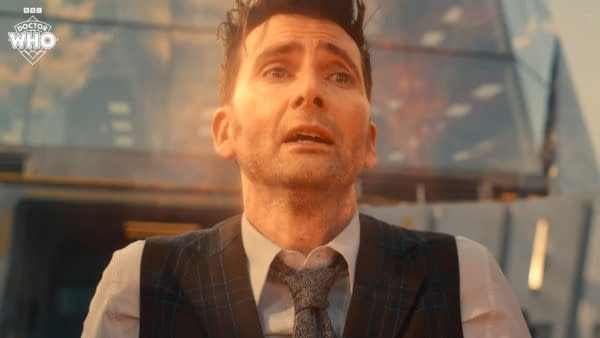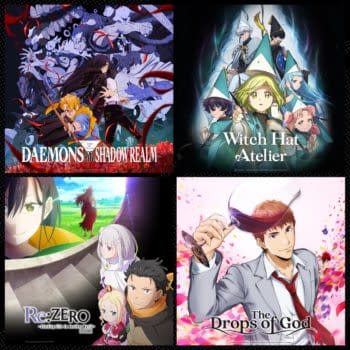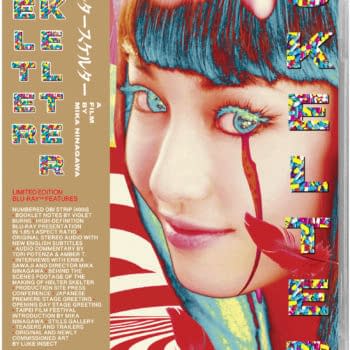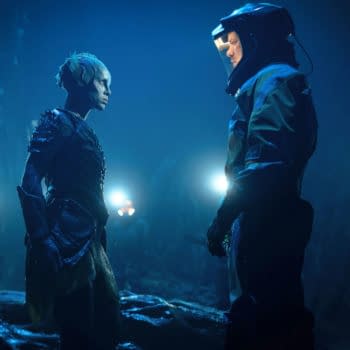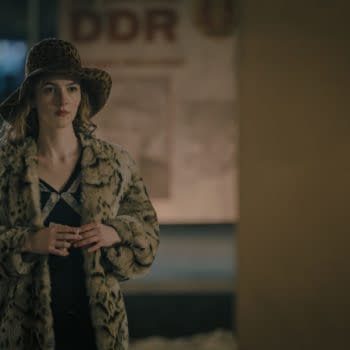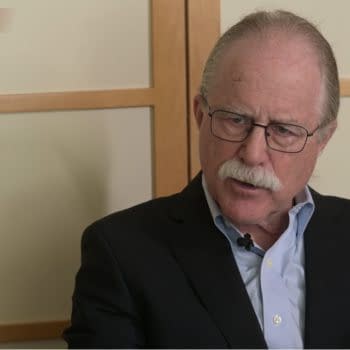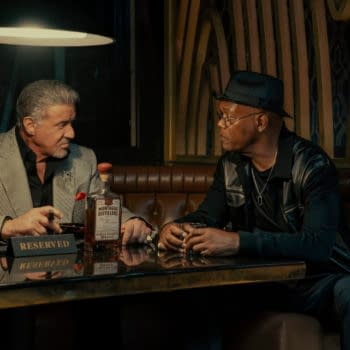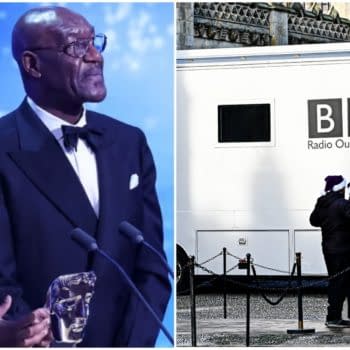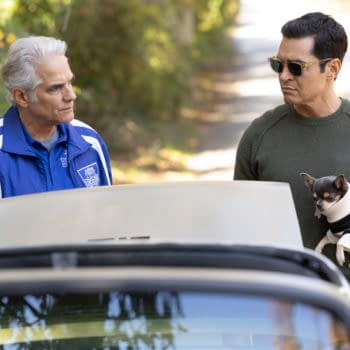Posted in: BBC, Doctor Who, Review, TV | Tagged: bbc, catherine tate, david tennant, doctor who, neil patrick harris
Doctor Who: "The Giggle" Ends Current Era with Endless Possibilities
"The Giggle," the final Doctor Who 60th Anniversary Special, is a fun maximum adventure that throws everything it can at us - and it worked.
Article Summary
- "The Giggle" wraps up Doctor Who's 60th anniversary in a game-changing way.
- Russell T. Davies promises a world of possibilities for fans.
- Ncuti Gatwa shines as the new Doctor, flirting with everything.
- The special opens endless opportunities for the future of Doctor Who.
We finally come to "The Giggle," the final 60th Anniversary Special that brings the modern era of Doctor Who to a close. Russell T. Davies has been warning and hyping that things change forever, and review screeners for the show cut the episode off at the 40-minute mark to prevent any trollish critics from spoiling the final 20 minutes ahead of time. We didn't bother with that and watched it on live broadcast. That's what a cultural event is like, folks!
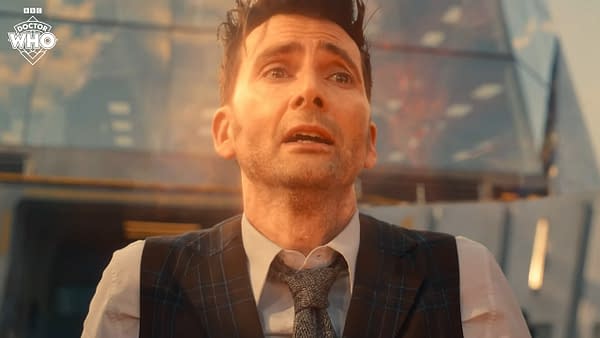
We don't have to spoil any of the story for you. You're going to watch it anyway. The Doctor (David Tennant) and Donna (Catherine Tate) go up against the Toymaker (Neil Patrick Harris), and it might be his swansong. That's all you need to know before you go in. The usual Doctor Who tropes are all here: UNIT soldiers still shoot at a deadly enemy who's impervious to bullets. That never changes. Then they get killed. That never changes either.
Davies is going full meta now, and he doesn't care if you hate it. He's throwing everything into this climactic special. It covers history – the invention of television in England in 1925 that has a Science Fiction twist on the future/present. He goes all Doctor Who, all children's fairytales. He goes full Gothic Horror with the creepy puppets because puppets are always creepy unless they're muppets. He goes full social commentary here with the pandemic of everyone in the world fighting each other because they're convinced they're right. It's very funny to see that even with the bigger budget, the "world falling apart" is just a street in Bristol masquerading as a section of East Central London. If this had been going on for a day, billions would be dead by the time the Doctor and Donna returned to London. However, to be more accurate, the worst people in the world (you know who they are) were already like that and would probably have still just sat at home continuing to type rants on social media rather than go out and kill anyone. Once again, he's set a trap for bigots and mean people: anyone who hates or disagrees will come off as just petty and joyless. Davies, a master of hype and social media, seems to have anticipated everything the bigots would say when they see the show and pre-empted them.
Harris plays the Toymaker with a camp, twinkling mix of camp, menace, pettiness, and insecurity. Davies has mastered what every professional screenwriter must know, which is to set up something very early in the story that becomes a huge payoff at the climax. The most notable thing about Davies as a writer is that he writes exactly the emotions he's feeling for the story that wants the audience to feel without any filters, and he's not afraid of how sentimental or mawkish he gets. He knows he's been putting the audience through an emotional rollercoaster for weeks, and it's time for the final catharsis.
This turns out to be a multiple Doctor crossover, after all, Davies' version of "The Two Doctors." It all makes sense – of course, an anniversary special should climax with more than one Doctor together. Ncuti Gatwa instantly starts to steal the show from even David Tennant, announcing the new sheriff in town, but also gracious enough to give the energy to his fellow actors despite his charisma threatening to pull all attention to him. Gatwa flirts with literally everyone and everything in the room, including inanimate objects, even the breathable air! He even flirts with the TARDIS both inside and out of it!
"The Giggle" is Davies' present to all geeks, not just Doctor Who fans, and especially musical theatre geeks, and lovers of pop culture everywhere. For the first time, a Doctor regenerating isn't sad. His scripts for these specials have been utterly gleeful, taking joy in stories, at the silliness, the sadness, the scariness, the creepiness, the campiness, goofiness, the seriousness, to prove once again that Doctor Who can contain literally anything and everything. It's the only TV show in the world that can. And for once, there's no sadness in the regeneration, no sense of grief or loss but a happy ending for everyone.
Of course, some fans will complain that Davies has retconned or "broken" canon. Who cares as long as it's fun? It's not illogical. Doctor Who never really had canon because, until the 1970s, the writers tended to make things up as they went along. Davies has not only given an ending to the modern era of the show that he created but also reset the show for a new phase that new viewers can discover after this without needing to watch over ten previous seasons. The joy of Doctor Who is the room it gives itself to do anything, be anything, and go anywhere, and Davies has thrown the door even further open for that future. It sets up the franchise to be even more endless than ever and gets to have its cake and eat it too. It's a ton of fun, and that's all that counts.
New episodes of Doctor Who are streaming globally on Disney+.
